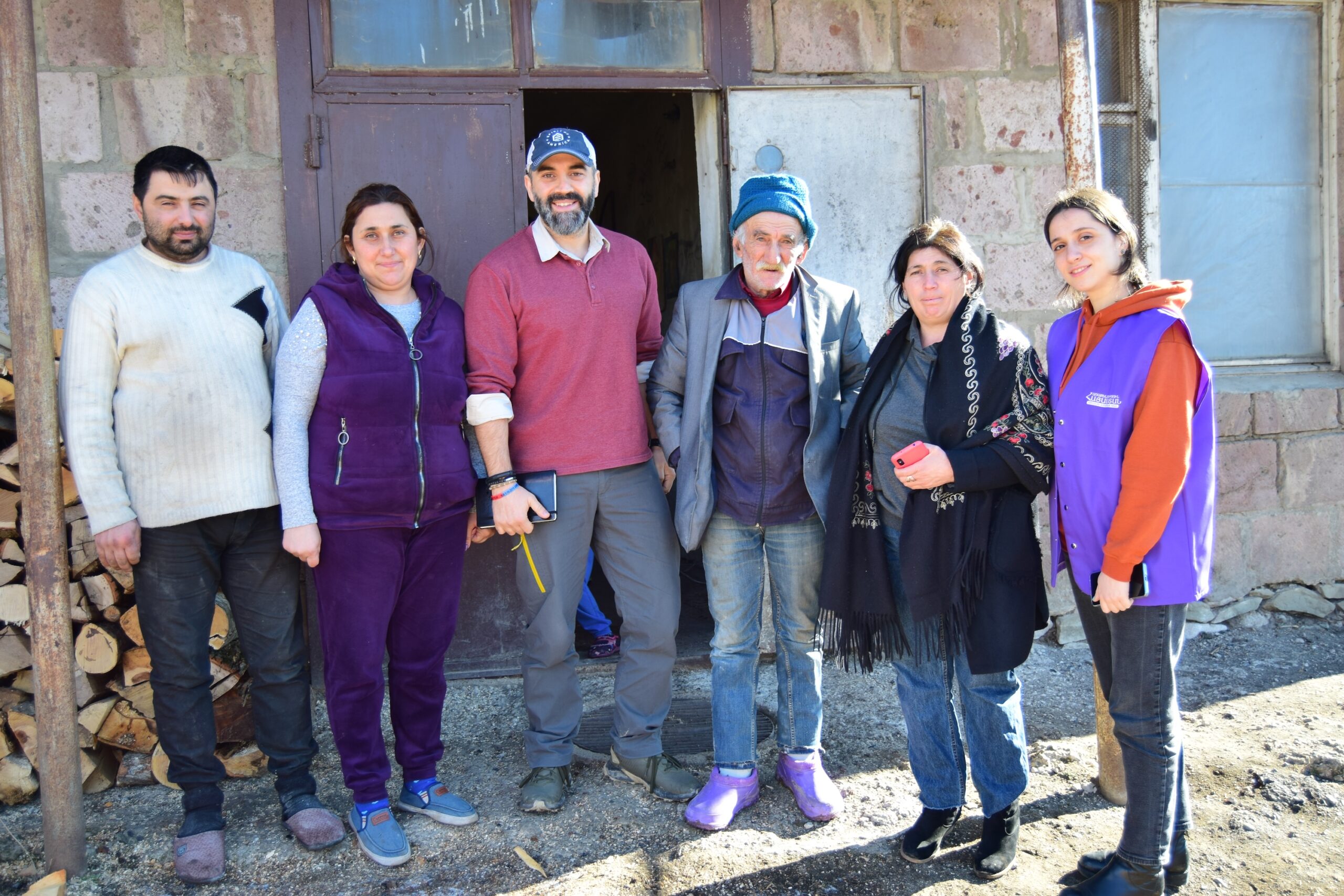PROMISES MADE AND KEPT IN ARMENIA

I first met Irina and her family last October in their new residence on the outskirts of Chambarak, a placid, windswept town a short drive east of Lake Sevan, Armenia. Winter was in the air, or at least the gloomy circumstances that brought me there made it feel that way.
My trip to Chambarak was arranged by Mission Armenia NGO, an organization with a three-decade track record of caring for displaced people. Irina and her family, like nearly 100,000 other Armenians, were displaced by the Nagorno-Karabakh Conflict that broke out in September 2023. I was there to assess their needs, which would allow me to better understand the broader situation and ultimately provide assistance to 200 displaced families.
Though my work brought my there, I felt like an intruder in the cold, barely furnished room sitting across from three ladies, their weary eyes fixed on me.


Spirit of America’s Zack Bazzi with Irina and her family last October.
“How many of you live here?” I asked.
In the rush of responses and my friend’s interpretations, I was uncertain of the precise number.
I finally jotted down, “10, could be 11.”
“Why did you leave your home?”
Sitting across from me, Irina explained that their village was being “indiscriminately shelled” and soon to be attacked.
“What did you leave with?”
The clothes they had on, documents, photos. Throughout my short time in Chambarak, I would hear variations of this response.
“Would you ever go back to your home?”
“If things are normal. If safe again,” Irina explained. “But there is no trust,” she added.
“If” is a word that comes up time and time again, not just in my interactions with displaced Armenians. Over the years, “if” has molded the shattered lives of the countless refugees I’ve encountered.
“If things are safe again.”
“If things go back to normal.”
I finished my assessment and moved on to the next family. But before departing, I promised that Spirit of America would do everything it could to help.
Over the next several weeks, we worked closely with Mission Armenia NGO, to finalize relief efforts. We also benefited greatly from insights shared by the US Embassy in Yerevan, Armenia.
I returned to Armenia in January. Winter is not the ideal time to visit the Caucasus region, but if the goal is to support displaced families, then winter is the necessary time to be there.
After a couple of days of preparation in Yerevan, we headed to Chambarak. This time, I came not to assess but to assist. And what a feeling that is. After all the tedious work — the negotiations, proposals, spreadsheets, memos, and phone calls — is complete, we get the opportunity — the privilege — to see the fruits of our labor.
Indeed, the Spirit of America – Mission Armenia NGO partnership yielded impressive results.
- Food and household items provided to 200 families
____
- School supplies in the hands of 110 children
____
- Nearly 50 homes supplied firewood to keep them warm and able to cook food through the winter.
Yet these aggregated results, as impressive as they are, can’t capture the real impact on the families. To witness how our endeavors translated into improved lives, I asked to revisit Irina’s family.
In October, I entered the house as a stranger. This time, Irina greeted me with a beaming smile and a warm embrace as we admired the massive firewood stacked against the house. We walked upstairs and gathered around a plain table with a Christmas-themed cover.

Spirit of America’s Zack Bazzi with Irina and her family this January.
The place was still sparsely furnished, and no doubt the family’s material situation remained perilous. Yet the atmosphere was different. The room was warm. The family, with support from the community, was getting by. A touch of optimism hung in the air. Perhaps it was the passage of time. Yet there was no doubt that the helping hand we lent with our partners made life just a bit better, their new homes a bit warmer, and their future a bit brighter.







